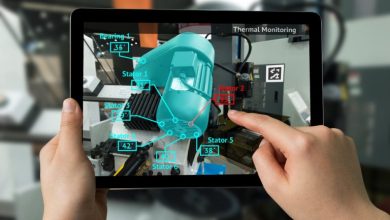Thermodynamics – How Important Is Thermodynamics for JEE?

What is Thermodynamics?
Thermodynamics is a branch of science that studies heat and temperature and their interactions with other types of energy. This branch originated primarily intending to enhance the efficiency of steam engines. It applies to a wide range of science and engineering topics, including chemical, physical, and mechanical engineering.
How Important is Thermodynamics for JEE?
Thermodynamics is considered an essential chapter for both JEE Advanced and JEE Mains. This is an important chapter that is available in both Chemistry and Physics. This concept is more extensive and logical in physics, and it encompasses many minor topics.
Veritas academy offers the best JEE mains coaching by highly qualified IITians. Exams have always included about 2-3 questions from this chapter. If students want to get full marks on the questions from this chapter, they should revise all important concepts and formulae.
Different Laws of Thermodynamics
The laws of thermodynamics define a set of physical quantities that characterize thermodynamic systems in thermodynamic equilibrium, such as temperature, energy, and entropy.
Traditionally, thermodynamics has recognized three fundamental laws, simply denoted by an ordinal identification, namely the first, second, and third laws. After the first three laws were established, a more fundamental statement became known as the zeroth law.
There are three fundamental principles of thermodynamics.
- The First Law: The first law deals with the conservation of energy. The most well-known law of thermodynamics is very familiar to any physics student. In an isolated system, the system’s energy remains constant irrespective of its processes.
- The Second Law: This law is also known as the law of entropy. Entropy is disorderly energy. This law states that in any thermodynamic process, entropy increases. You cannot convert 100 per cent of the energy of one form to another without losing some of it in the process.
- The Third Law: The third law deals with systems at absolute zero temperature and provides an absolute scale of values for entropies. It states that at absolute zero, the change of total entropy is zero for changes involving perfect crystalline solids.
- The Zeroth Law: There is also a zeroth law which simply states thermal equilibrium is transitive. That is, if state 1 is in equilibrium with state 2 and state 2 is in equilibrium with state 3 then state 3 is in equilibrium with state 1.
Applications of Thermodynamics
Various types of thermodynamic processes help implement thermodynamic laws for various thermodynamic applications.
- All the vehicles we use, including cars, motorcycles, trucks, ships, and aero planes, are based on the second law of thermodynamics and the Carnot Cycle.
- All the air-conditioners, refrigerators, deep freezers, industrial refrigeration systems, heat pumps, etc., work based on the second law of thermodynamics.
- Blowers, fans, air and gas compressors, etc., run on various thermodynamic cycles.
- Heat transfer is an important field of thermodynamics that deals with the transfer of heat between two media. Heat transfer is used in various devices such as heat exchangers, evaporators, condensers, radiators, coolers, heaters, and so on. Conduction, convection, and radiation are the three modes of heat transfer.
- Thermodynamics also involves the study of various types of power plants like thermal power plants, nuclear power plants, hydroelectric power plants, and power plants based on renewable energy sources like solar, wind, geothermal, water waves, tides, etc.,
- Renewable energy is an important topic in thermodynamics that involves researching the viability of using various types of renewable energy sources for commercial and domestic purposes.
There is no other field of study that is as closely related to human life as thermodynamics. Thermodynamics is the study of an infinite universe, and it has an infinite number of applications. The list of thermodynamic applications is very long, and if you want to mention individual applications, they can be infinite.
Conclusion:
Thermodynamics is not a difficult chapter, but it does require a lot of practice. The theory is relatively simple to grasp, and once you see solved examples, you should be able to breeze through the numerical portion with ease. The chapter has a high weightage in JEE Advanced and will easily earn you marks. If you want to score under the top 10 ranks, it is advised to choose the best IIT JEE coaching in Hyderabad, which has exceptional teaching faculty, sophisticated labs and interactive sessions where you can clear all your doubts.




